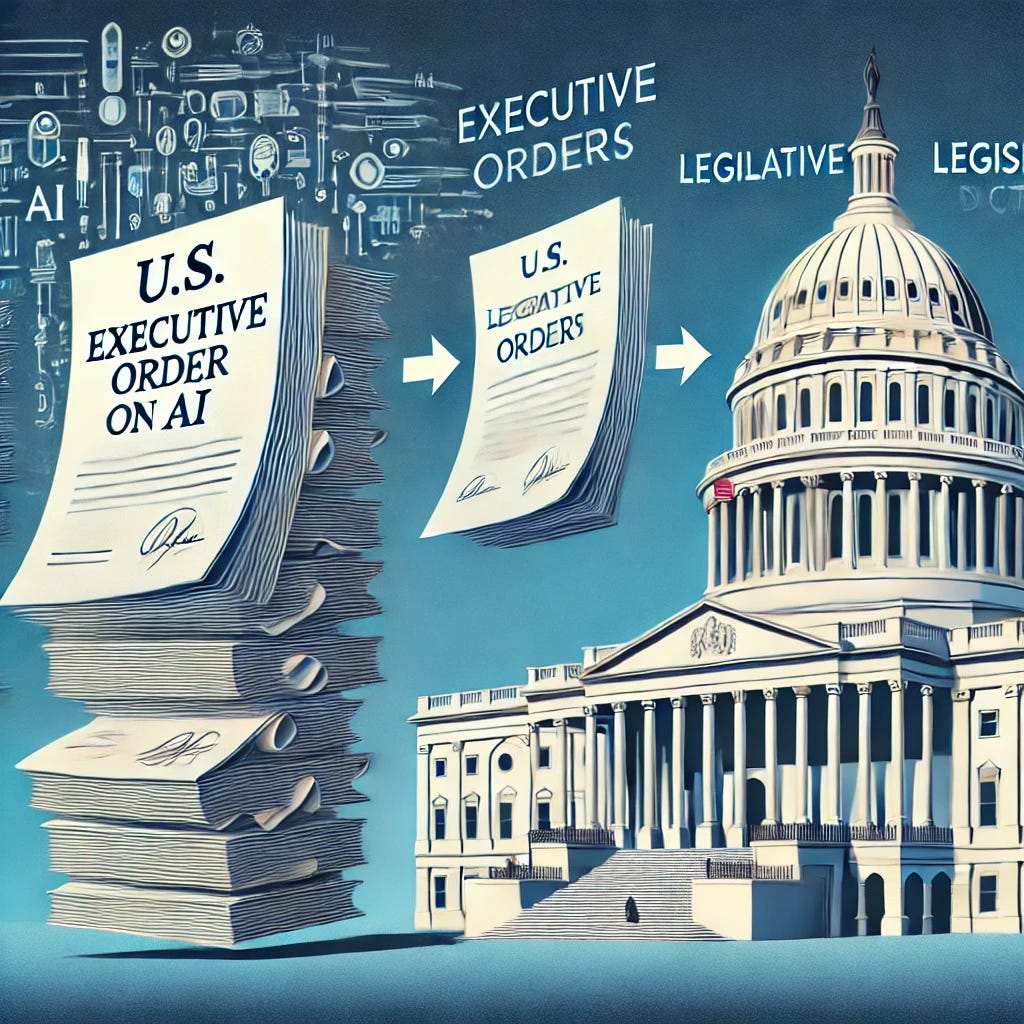Taking Inventory of AI Policy in the U.S.
Is the Executive Order Era Over?
The 2024 elections are now behind us, with the 118th United States Congress nearing its end. Historically, U.S. digital policy has leaned toward a laissez-faire approach, favoring a reactive, harm-focused model over preventive regulation. This stance typically relies on sector-specific laws, antitrust frameworks, and the tort system, focusing on addressing harms after they occur rather than preemptively regulating them. While this ex-post approach reduces regulatory burdens, it also reflects a hesitance to interfere with industry until concrete harms arise.
In contrast, Europe and the UK have enacted comprehensive AI laws, such as the EU's AI Act, and the United States has yet to establish federal legislation. Instead, the U.S. has relied on a combination of executive orders, sector-specific regulations, and state-level initiatives to govern AI development and deployment. Over the last three presidential administrations, executive orders have largely filled the legislative void.
Public support for AI regulation, however, has surged. As of September of 2023, the Artificial Intelligence Policy Institute (AIPI) poll shows that 78% of the respondents believe in the importance of Artificial Intelligence in public policy (43% “extremely important” and 35% as “somewhat important”). Meanwhile, recent opinions by the Supreme Court restricted federal agencies’ discretionary authority and increased scrutiny over congressional delegation of authority. Executive orders, legally unenforceable in many cases, no longer suffice if the goal is meaningful regulation rather than preserving the status quo. A concerted push to engage legislative bodies - both state and federal - is essential.
With no federal legislation, states have begun to fill the gap. Multistate.ai is tracking 692 AI bills in 45 states, 111 of which have been enacted into law. While a laudable expression of federalism in action, this level of fragmentation creates uncertainty and arbitrage opportunities and increases compliance costs for companies of all sizes.
Speculation now turns to the upcoming 119th Congress and whether it will prioritize federal AI legislation. My view? While this may not be a 100-day focus for the new Trump administration, AI regulation will become a critical issue for Congress. The era of governing by executive order alone is drawing to a close, and alignment between civil society and industry could drive a call for legislative action. What direction it will take remains to be seen.




